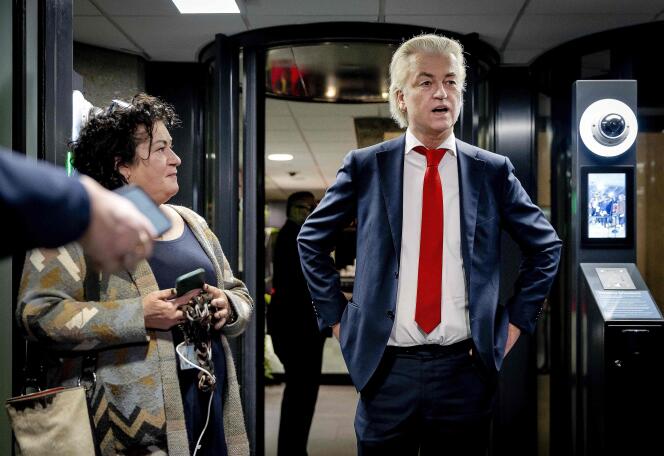


He had strategically adjusted his most radical comments on the closure of mosques, the banning of the Koran, and asylum policy. Two weeks after his victory in the legislative elections, Dutch populist Geert Wilders still, however, attended a demonstration in The Hague on November 28, to protest against the housing of asylum seekers in a hotel. He said he was not attending as prime minister, "but as leader of the PVV [Party for Freedom]." "I'm proud to meet people with problems, victims of theft [the taxpayers who, he says, finance the accommodation]."
The man who topped the polls with a quarter of the vote on November 22, and who intends to rule the Netherlands, showed that he remains, first and foremost, an extremist agitator. He heads a party that is not a party: the PVV has only one member, Wilders himself, and has no leaders or figures likely to rise to prominence in future. It has no experience of power at any level. Writer Geert Mak has described the Party for Freedom as a "little electric train that has been running in circles in a living room for 14 years and suddenly finds itself plugged into 220 volts."
Yet here, after Italy, is another founding member of the European Community likely to be led by the far right. In this deceptively tranquil kingdom, the fire had actually been smoldering for over 20 years. The populist Pim Fortuyn was the first to light the fuse, linking muted popular dissatisfaction with politicians with a rejection of foreigners, a link that fueled nationalist rhetoric.
The liberal Mark Rutte, armed with his perpetual smile, great popularity and unfailing ideological flexibility, led four coalitions since 2010 and managed to confine the far right to a purely protest role. Rutte also had the real conviction, based on his own experience, that it was impossible to govern with Wilders. Proof of this was the rapid failure of his first government in 2012, quickly torpedoed by the PVV, which had promised him support in Parliament on a case by case basis. This "politics of tolerance," as the Dutch call it, is back on the agenda.
After making a strategic error at the start of the campaign, Dilan Yesilgöz, the resigning Minister of Justice who succeeded Rutte at the head of the Liberal Party, is trapped. Her unfortunate comment (since corrected) on the "possibility" of governing with Wilders had a double consequence: it legitimized the far right, and it consequently caused a significant part of the liberal electorate to flee to the PVV. Coupled with the collapse of the centrist parties and the inability of the "red-green" left to voice a counter-discourse, this blunder led to a success that astonished even Wilders himself.
You have 50% of this article left to read. The rest is for subscribers only.
